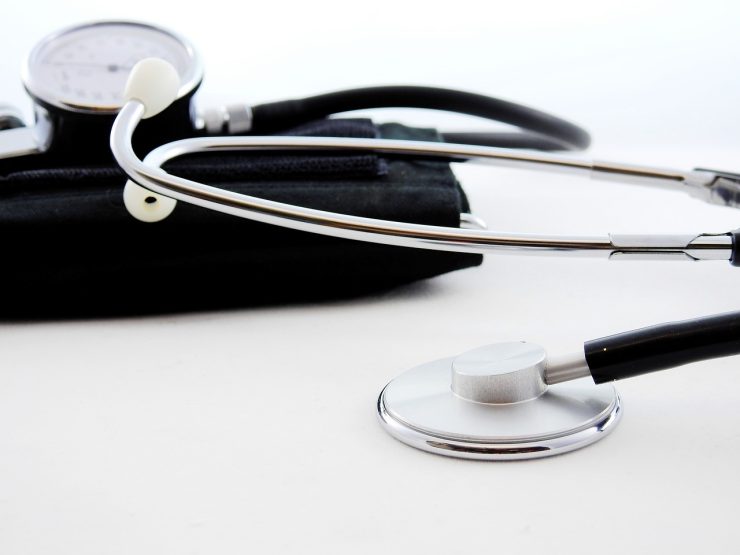Your liver is kind of a rockstar when it comes to keeping you alive and well. It’s always working behind the scenes, breaking down toxins, metabolizing nutrients, and handling more than 500 different jobs—many of which you probably don’t even think about.
Here’s just a small glimpse of what your liver is doing for you right now:
-
It produces bile to help you digest fats.
-
It processes the nutrients from the food you eat.
-
It makes certain proteins your blood needs to clot.
-
It creates cholesterol (which your body uses to make hormones).
-
It stores excess glucose as glycogen for later.
-
It breaks down old red blood cells and stores iron.
-
It supports your immune system.
-
It metabolizes medications and toxins.
-
It regulates hormone levels.
-
It helps manage blood sugar and produces ketones when needed.
All of that—and it never asks for a thank you. But truthfully, when the liver starts struggling, your whole body feels it. Liver issues can sneak up on you, and once they do, the damage can be pretty serious.
A Growing Problem
Liver disease is becoming more and more common. In fact, according to the CDC, deaths from chronic liver disease and cirrhosis have been steadily rising since 2007. One of the biggest culprits? Non-Alcoholic Fatty Liver Disease (NAFLD). It’s mostly driven by diets high in processed carbs, sugar, and industrial seed oils. Sugary drinks especially can overwhelm your liver with fat, leading to inflammation, scarring, and eventually cirrhosis or liver failure.
But it’s not just diet. Liver function can also be affected by:
-
Certain medications (like acetaminophen, statins, or some antibiotics)
-
Viral infections (like hepatitis)
-
Excess iron
-
Epstein-Barr (mono)
And because your liver doesn’t always “complain” in obvious ways, early warning signs can be easy to miss. Things like fatigue, joint pain, brain fog, or even itchy skin can be red flags—along with more classic symptoms like nausea or yellowing of the eyes and skin (jaundice).
How to Support Your Liver
Protecting your liver really comes down to a few key lifestyle habits—and yes, diet is front and center. Here’s what to steer clear of:
Refined carbs and sugar – These spike blood sugar and insulin, and the excess ends up stored as fat in the liver.
Vegetable/seed oils – Think soybean, corn, canola, sunflower, etc. They’re high in linoleic acid, which is very inflammatory and hard on your liver.
Too much alcohol – Even a few extra drinks here and there can overload your liver. If you do drink, stick to small amounts—ideally dry wine without sugary mixers.
Excess weight and body fat – A low-carb approach can help you lose fat, improve insulin sensitivity, and take a load off your liver.
Sedentary lifestyle – Exercise helps burn off the glycogen stored in the liver, making room for the liver to process more nutrients instead of storing fat.
Foods That Help Your Liver Thrive
There are a number of foods that actively support liver function, help detoxification, and fight inflammation:
Choline-rich foods – Found in egg yolks and beef liver, choline helps clear fat from the liver and supports brain function. Women over 45 especially need more choline, as lower estrogen reduces the body’s ability to produce it naturally.
Cruciferous veggies – Broccoli, kale, cabbage, Brussels sprouts, cauliflower, etc. These are rich in sulforaphane, which helps detox the liver and reduce inflammation. Sprouts (like broccoli sprouts) are even more potent—just go easy on cooking to preserve those compounds.
Garlic – It’s full of sulfur, allicin, and antioxidants. One study showed garlic supplements significantly reduced liver fat and improved cholesterol in people with NAFLD.
Coffee – Yep, black coffee (especially organic) is a liver-lover. It lowers inflammation, helps prevent scarring, and even raises glutathione—your liver’s master antioxidant.
Beets and beet juice – Beets help your liver detox more efficiently by boosting bile flow and fighting oxidative stress.
Artichokes – They contain cynarin and silymarin, which help detox the liver, improve bile production, and even lower cholesterol.
Grapefruit – Rich in a compound called naringenin, it supports alcohol metabolism, reduces inflammation, and helps burn liver fat.
Mushrooms – Especially reishi, turkey tail, oyster, and porcini. These boost antioxidants like glutathione and support liver repair.
Fatty fish and omega-3s – Omega-3s fight inflammation and reduce liver fat. Meanwhile, omega-6-rich oils (like vegetable oils) do the opposite—so ditch those.
Dandelion greens or tea – Dandelion stimulates bile flow and has been used for centuries to support liver health. You can add the fresh greens to salads, or sip the tea.
Extra Virgin Olive Oil – Just a teaspoon a day can reduce liver inflammation and improve metabolic health, thanks to its monounsaturated fats and antioxidants.
Bottom line? Your liver might not get much attention, but it’s absolutely central to your health. When you take care of your liver, you’re also supporting your brain, your metabolism, your immune system, and more. It’s all connected—and the better your liver works, the better you feel.
Take care of it now, and it’ll keep taking care of you for the long haul.











